Chia seeds are gaining popularity as a nutritional powerhouse due to their impressive health benefits. These tiny seeds, derived from the Salvia hispanica plant, are packed with essential nutrients, fiber, and antioxidants. Incorporating chia seeds into your diet can significantly enhance your overall wellness.
Chia seeds are small, black seeds that originate from Central America. They have been a staple in ancient diets and are now recognized globally for their nutritional density. These seeds are incredibly versatile and can be easily included in various dishes, making them a popular choice for health enthusiasts.
Chia seeds are labeled as a superfood due to their remarkable nutrient profile. They are rich in omega-3 fatty acids, which are essential for heart health, and contain a high amount of fiber that supports digestion. Additionally, they provide a good source of protein and various vitamins and minerals, making them a valuable addition to any diet.
Chia seeds boast an impressive array of nutrients, including:
- Calcium: Vital for bone health.
- Magnesium: Important for muscle and nerve function.
- Phosphorus: Essential for healthy bones and teeth.
- Antioxidants: Help combat oxidative stress in the body.
This combination of nutrients contributes to various health benefits and supports bodily functions.
The high fiber content in chia seeds plays a crucial role in promoting digestive health. They absorb water and expand in the stomach, which helps to regulate bowel movements and prevent constipation. This natural remedy can be particularly beneficial for those experiencing digestive issues.
Chia seeds can be an effective tool for weight management. Their ability to absorb water and swell in the stomach promotes a feeling of fullness, reducing overall calorie intake. This can help individuals manage their weight more effectively while still enjoying satisfying meals.
Rich in omega-3 fatty acids, chia seeds are beneficial for heart health. They can help lower cholesterol levels, reduce inflammation, and improve overall cardiovascular function. Regular consumption of chia seeds may contribute to a healthier heart and reduced risk of heart disease.
Chia seeds are an excellent source of calcium, magnesium, and phosphorus, all of which are essential for maintaining strong bones. Their nutrient profile can help prevent conditions like osteoporosis, making them a smart choice for those looking to support their bone health.
Athletes often turn to chia seeds for their energy-boosting properties. The seeds provide a sustained release of energy, making them an ideal snack before or during workouts. Additionally, they help with hydration due to their ability to absorb water, which can be beneficial for endurance athletes.
Incorporating chia seeds into your diet is simple and versatile. They can be added to:
- Smoothies: Blend them into your favorite drink for added nutrition.
- Yogurt: Mix them into yogurt for a nutritious snack.
- Salads: Sprinkle them on salads for a crunchy texture.
- Baked goods: Include them in muffins, bread, or pancakes for an extra nutrient boost.
With their mild flavor, chia seeds can enhance both the nutrition and taste of your meals.

What Are Chia Seeds?
Chia seeds are small, nutrient-dense seeds derived from the Salvia hispanica plant, which is indigenous to Central America. These tiny black seeds have gained immense popularity in recent years, primarily due to their remarkable health benefits and adaptability within various dietary regimens.
Originating from a plant that was revered by ancient civilizations, chia seeds have been consumed for centuries. They were a staple in the diets of the Aztecs and Mayans, who valued them for their energy-boosting properties. Today, these seeds are celebrated as a superfood and are widely incorporated into modern diets.
One of the key reasons chia seeds have garnered attention is their impressive nutritional profile. They are rich in essential nutrients, including:
- Omega-3 fatty acids: These healthy fats are crucial for heart health and cognitive function.
- Dietary fiber: Chia seeds are packed with fiber, aiding in digestion and promoting a feeling of fullness.
- Protein: They provide a plant-based protein source, making them an excellent choice for vegetarians and vegans.
- Micronutrients: Chia seeds contain important minerals such as calcium, magnesium, and phosphorus, which are vital for bone health.
Additionally, chia seeds are known for their ability to absorb liquid, forming a gel-like consistency. This unique property not only enhances their culinary versatility but also contributes to their health benefits. When consumed, they can help regulate blood sugar levels and improve hydration.
Incorporating chia seeds into your diet is simple and can be done in various ways. For instance, you can add them to smoothies, sprinkle them on salads, mix them into yogurt, or use them as an egg substitute in baking. Their subtle nutty flavor complements a wide range of dishes, making them a favorite among health enthusiasts.
Moreover, the health benefits of chia seeds extend beyond mere nutrition. They have been linked to improved heart health, weight management, and enhanced digestive function. The high fiber content in chia seeds promotes regular bowel movements, while their omega-3 fatty acids help reduce inflammation and lower cholesterol levels.
In summary, chia seeds are more than just a trendy health food; they are a nutritional powerhouse that can enhance your overall wellness. By adding these tiny seeds to your meals, you can enjoy their myriad health benefits while also enriching your diet with essential nutrients.
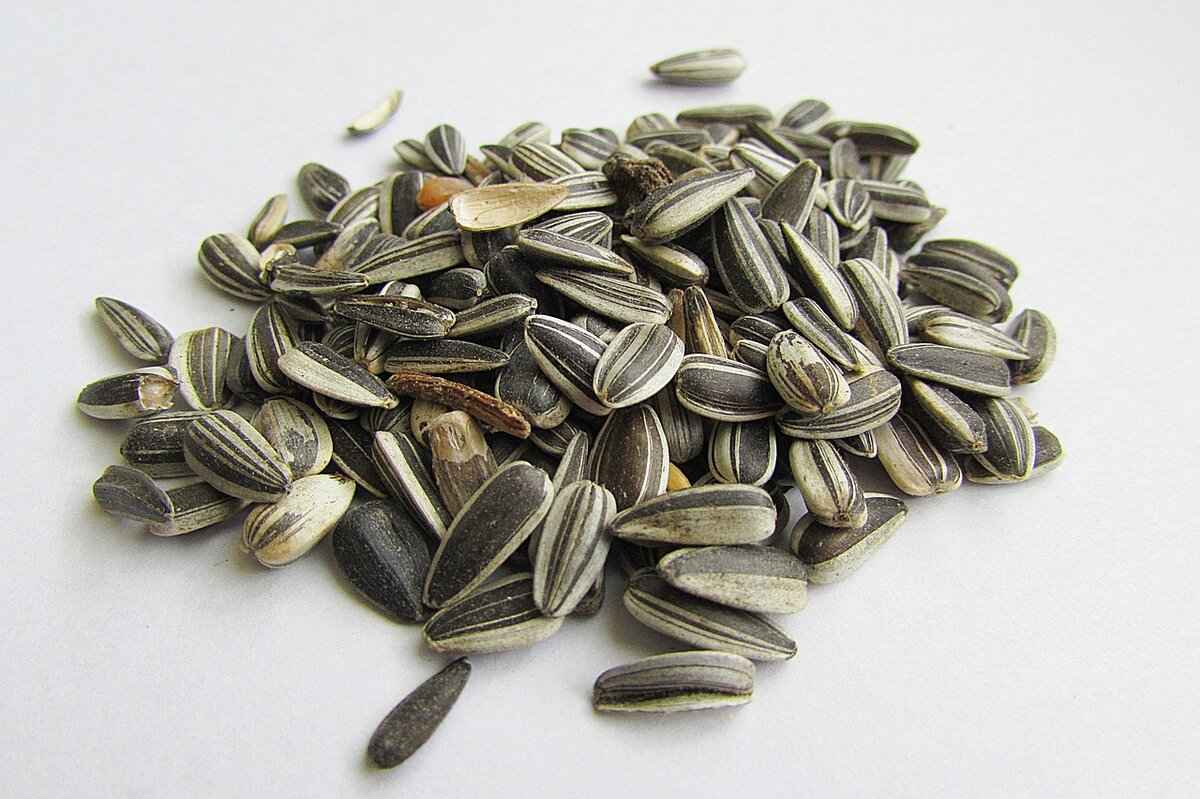
Why Are Chia Seeds Considered a Superfood?
Chia seeds, often hailed as a superfood, are tiny black seeds derived from the Salvia hispanica plant, which is native to Central America. Their remarkable nutritional profile makes them a valuable addition to any diet. But what exactly contributes to their superfood status? Let’s delve into the reasons why chia seeds are considered a powerhouse of nutrition.
Chia seeds are dubbed a superfood due to their high levels of omega-3 fatty acids, fiber, protein, and various micronutrients, making them an excellent addition to a balanced diet. Here are a few key reasons:
- Rich in Omega-3 Fatty Acids: Chia seeds are one of the best plant-based sources of omega-3 fatty acids, particularly alpha-linolenic acid (ALA). These essential fats are crucial for heart health, as they help lower cholesterol levels and reduce inflammation in the body.
- High Fiber Content: With about 11 grams of fiber per ounce, chia seeds can significantly contribute to your daily fiber intake. This high fiber content promotes digestive health by enhancing regular bowel movements and preventing constipation.
- Complete Protein Source: Chia seeds contain all nine essential amino acids, making them a complete protein source. This is particularly beneficial for those following a plant-based diet, as it helps in muscle repair and growth.
- Loaded with Micronutrients: Chia seeds are packed with vital minerals such as calcium, magnesium, and phosphorus. These nutrients support various bodily functions, including bone health and muscle function.
- Antioxidant Properties: Chia seeds are rich in antioxidants, which help combat oxidative stress and reduce inflammation in the body. This can lead to improved overall health and a lower risk of chronic diseases.
The unique ability of chia seeds to absorb water is another factor that enhances their superfood status. When soaked in liquid, chia seeds can expand up to 12 times their original size, forming a gel-like consistency. This property not only aids in hydration but also contributes to a feeling of fullness, making them an excellent choice for those looking to manage their weight.
Furthermore, incorporating chia seeds into your diet is easy and versatile. They can be added to smoothies, yogurt, salads, and even baked goods, enhancing both the nutritional value and flavor of your meals. Their mild, nutty taste complements a variety of dishes, making them a popular choice among health-conscious individuals.
In conclusion, the combination of omega-3 fatty acids, fiber, protein, and essential micronutrients makes chia seeds a remarkable superfood. Their numerous health benefits, ease of incorporation into meals, and ability to promote satiety make them an excellent choice for anyone looking to enhance their diet and overall health.

What Nutrients Are Found in Chia Seeds?
Chia seeds are more than just a trendy superfood; they are a powerhouse of essential nutrients that can significantly contribute to your overall health. These tiny black seeds, derived from the Salvia hispanica plant, are packed with an impressive array of vitamins and minerals that support various bodily functions. Understanding the nutrient profile of chia seeds can help you appreciate their role in a balanced diet.
Chia seeds are renowned for their rich nutrient content, which includes:
- Calcium: Essential for strong bones and teeth, calcium also plays a crucial role in muscle function and nerve signaling. One ounce of chia seeds contains about 18% of the recommended daily intake of calcium.
- Magnesium: This mineral is vital for over 300 biochemical reactions in the body, including energy production and protein synthesis. Chia seeds provide a significant source of magnesium, which can help regulate blood pressure and support muscle and nerve function.
- Phosphorus: Important for bone health, phosphorus also aids in the formation of DNA and RNA. Chia seeds are a great source of this mineral, contributing to overall cellular health.
- Antioxidants: Chia seeds are rich in antioxidants, which help combat oxidative stress and inflammation in the body. These compounds can protect your cells from damage caused by free radicals.
- Omega-3 Fatty Acids: Chia seeds are an excellent plant-based source of omega-3 fatty acids, particularly alpha-linolenic acid (ALA). These healthy fats are known to support heart health and reduce inflammation.
- Fiber: With a whopping 10 grams of fiber per ounce, chia seeds are a fantastic way to boost your daily fiber intake. Fiber is essential for digestive health, helping to maintain regular bowel movements and promote satiety.
- Protein: Chia seeds are a complete protein source, containing all nine essential amino acids. This makes them an excellent addition to vegetarian and vegan diets.
The combination of these nutrients makes chia seeds a unique food that can enhance your diet in numerous ways. Their high fiber content not only aids in digestion but also helps in managing weight by promoting a feeling of fullness. Moreover, the omega-3 fatty acids found in chia seeds are crucial for heart health, as they help lower cholesterol levels and reduce inflammation.
Additionally, the antioxidants in chia seeds can help protect against chronic diseases by reducing oxidative stress. This nutrient-dense seed can be easily incorporated into your meals, whether in smoothies, salads, or baked goods, making it a versatile ingredient for enhancing both nutrition and flavor.
Incorporating chia seeds into your daily routine can provide numerous health benefits, thanks to their impressive nutrient profile. From supporting bone health to aiding in weight management, these tiny seeds are indeed a formidable addition to any diet.
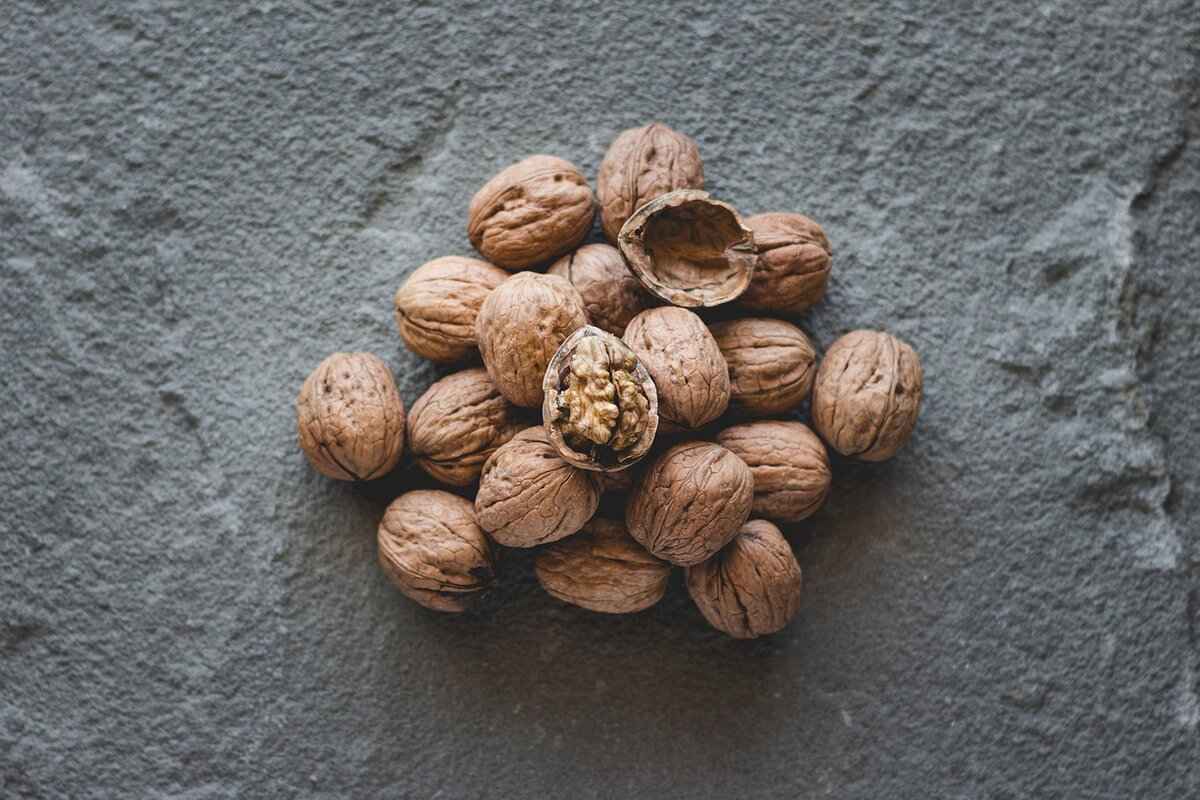
How Do Chia Seeds Support Digestive Health?
Chia seeds, often hailed as a superfood, have gained popularity for their numerous health benefits. Among these, their role in supporting digestive health is particularly noteworthy. The high fiber content in chia seeds plays a crucial role in promoting digestive wellness.
The fiber content in chia seeds is one of their most significant attributes, with approximately 10 grams of fiber per ounce (28 grams). This high fiber level contributes to improved digestion in several ways:
- Promotes Regular Bowel Movements: The soluble fiber found in chia seeds absorbs water, forming a gel-like substance in the digestive tract. This process helps to bulk up stool and facilitates its passage through the intestines, thereby promoting regular bowel movements.
- Prevents Constipation: By adding bulk to the stool and promoting hydration, chia seeds can help prevent constipation. Regular consumption can lead to a more efficient digestive system and reduce discomfort associated with irregular bowel habits.
- Supports Gut Health: The fiber in chia seeds acts as a prebiotic, feeding the beneficial bacteria in the gut. A healthy gut microbiome is essential for proper digestion and can enhance nutrient absorption.
- Reduces Digestive Issues: Many people experience digestive discomfort from bloating or gas. Chia seeds can help mitigate these issues by regulating bowel movements and improving overall gut health.
In addition to their fiber content, chia seeds are rich in antioxidants, which can also play a role in digestive health. Antioxidants help combat oxidative stress in the body, supporting the health of the digestive tract.
To incorporate chia seeds into your diet for digestive benefits, consider the following tips:
- Add to Smoothies: Blend chia seeds into your favorite smoothies for a nutrient boost.
- Mix with Yogurt: Stir chia seeds into yogurt for added texture and health benefits.
- Use in Baking: Incorporate chia seeds into baked goods like muffins or bread for an extra fiber kick.
- Make Chia Pudding: Soak chia seeds in milk or a milk alternative overnight to create a delicious and nutritious pudding.
In conclusion, chia seeds are a versatile addition to any diet, particularly for those seeking to improve their digestive health. Their high fiber content not only promotes regular bowel movements but also supports gut health and helps prevent digestive issues. By incorporating chia seeds into your meals, you can enjoy their numerous benefits and enhance your overall wellness.
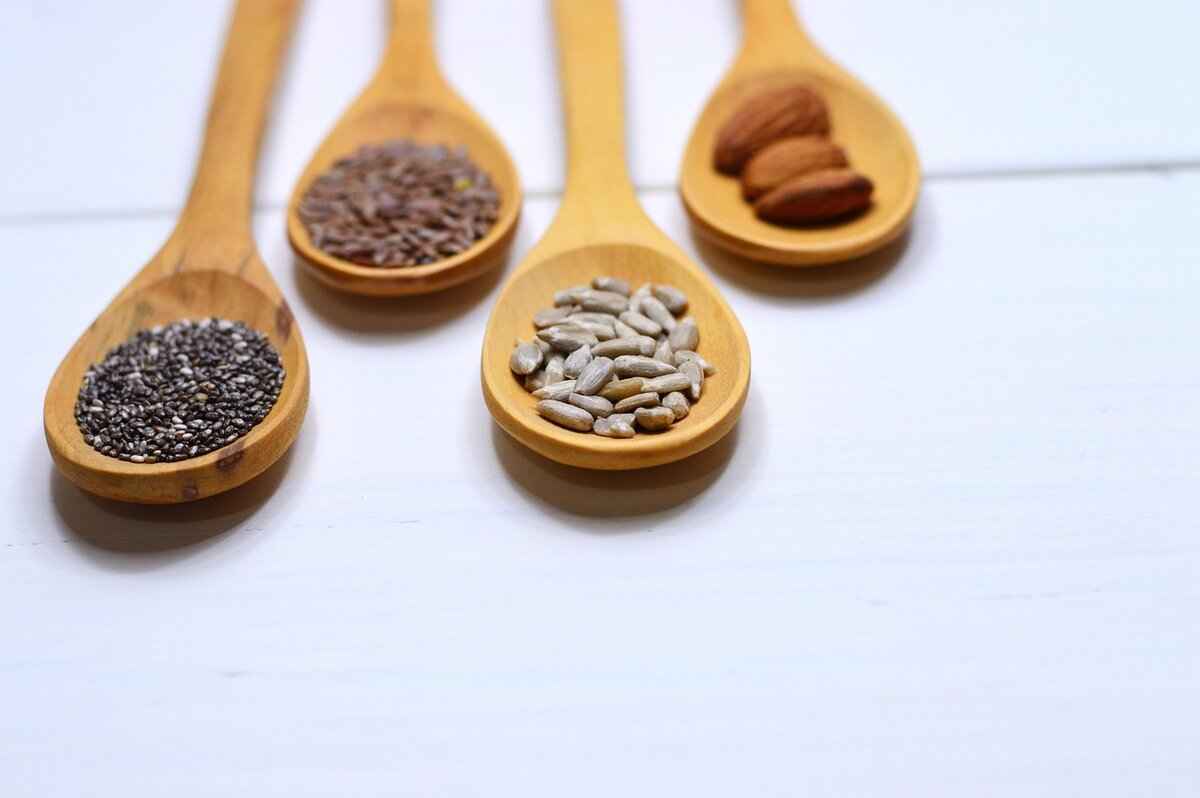
Can Chia Seeds Help with Weight Management?
Chia seeds have gained popularity in recent years, especially among those seeking to manage their weight effectively. These tiny seeds, derived from the Salvia hispanica plant, are not just a trendy superfood; they possess unique properties that can contribute significantly to weight management.
One of the primary reasons chia seeds are effective for weight management is their remarkable ability to absorb water. When chia seeds come into contact with liquid, they can swell up to 12 times their original size. This characteristic allows them to form a gel-like substance in the stomach, which can promote a feeling of fullness. As a result, individuals may find themselves consuming fewer calories overall, leading to a caloric deficit that is essential for weight loss.
Moreover, the high fiber content in chia seeds plays a crucial role in enhancing satiety. Each serving of chia seeds contains approximately 10 grams of fiber, which slows digestion and helps maintain stable blood sugar levels. This can prevent sudden hunger pangs and reduce the likelihood of unhealthy snacking between meals. In addition to promoting a feeling of fullness, fiber also supports digestive health, ensuring that your body processes food efficiently.
Incorporating chia seeds into your diet is simple and versatile. They can be added to smoothies, yogurt, oatmeal, or even baked goods. Their neutral flavor makes them an excellent ingredient that enhances the nutritional profile of various dishes without altering their taste. For those looking to control portion sizes, chia seeds can be a great addition to meals, allowing for smaller portions while still feeling satisfied.
Another aspect to consider is the role of chia seeds in hydration. When chia seeds absorb water, they not only expand but also help to retain moisture in your body. Staying hydrated is essential for optimal metabolic function, which can further support weight management efforts. Proper hydration can enhance your energy levels, allowing for increased physical activity, which is a vital component of any weight loss strategy.
While chia seeds can be an effective tool for weight management, it is important to remember that they are not a magic solution. A balanced diet and regular exercise are crucial for achieving and maintaining a healthy weight. However, when used as part of a comprehensive weight management plan, chia seeds can provide valuable support due to their unique properties.
In summary, chia seeds can indeed aid in weight management thanks to their ability to absorb water, expand in the stomach, and promote a feeling of fullness. Their high fiber content and versatility make them an excellent addition to a healthy diet. By incorporating chia seeds into your meals, you may find it easier to control your caloric intake and achieve your weight management goals.

How Do Chia Seeds Benefit Heart Health?
Chia seeds, often hailed as a superfood, are not just tiny nutritional powerhouses; they also play a significant role in promoting heart health. Rich in omega-3 fatty acids, these seeds have become increasingly popular among health enthusiasts and nutritionists alike. Understanding how chia seeds contribute to cardiovascular well-being can empower individuals to make informed dietary choices.
One of the primary ways chia seeds support heart health is through their high content of omega-3 fatty acids. These essential fats are known to lower cholesterol levels, which is crucial for maintaining a healthy heart. By incorporating chia seeds into your diet, you can help reduce low-density lipoprotein (LDL) cholesterol, often referred to as “bad” cholesterol. This reduction can lead to a decreased risk of heart disease and other cardiovascular issues.
Additionally, chia seeds are packed with antioxidants, which combat oxidative stress in the body. Oxidative stress can lead to inflammation, a known contributor to heart disease. By reducing inflammation, chia seeds help improve overall cardiovascular function, making the heart more efficient in its operations.
Moreover, the soluble fiber found in chia seeds plays a crucial role in heart health. When chia seeds are consumed, they absorb liquid and form a gel-like substance in the stomach. This gel can help slow down digestion, leading to a more gradual release of sugar into the bloodstream. This process helps stabilize blood sugar levels, which is important for heart health, as fluctuations in blood sugar can lead to various cardiovascular issues.
- Cholesterol Lowering: Regular consumption of chia seeds can help lower LDL cholesterol levels.
- Inflammation Reduction: The antioxidants in chia seeds help reduce inflammation in the body.
- Blood Sugar Stabilization: The soluble fiber aids in maintaining stable blood sugar levels.
Furthermore, chia seeds are a great source of magnesium, a mineral that plays an essential role in maintaining a healthy heart rhythm. Magnesium helps regulate blood pressure and supports the contraction and relaxation of the heart muscles. A diet rich in magnesium can lead to better heart health and lower risks of cardiovascular diseases.
Incorporating chia seeds into your daily diet is simple and versatile. You can add them to smoothies, sprinkle them on salads, or mix them into yogurt. Not only do they enhance the nutritional profile of your meals, but they also add a delightful crunch and texture.
In summary, chia seeds are a potent ally in the quest for better heart health. Their rich content of omega-3 fatty acids, antioxidants, soluble fiber, and essential minerals makes them an excellent addition to any heart-healthy diet. By making chia seeds a staple in your meals, you can enjoy a range of cardiovascular benefits that contribute to overall wellness.
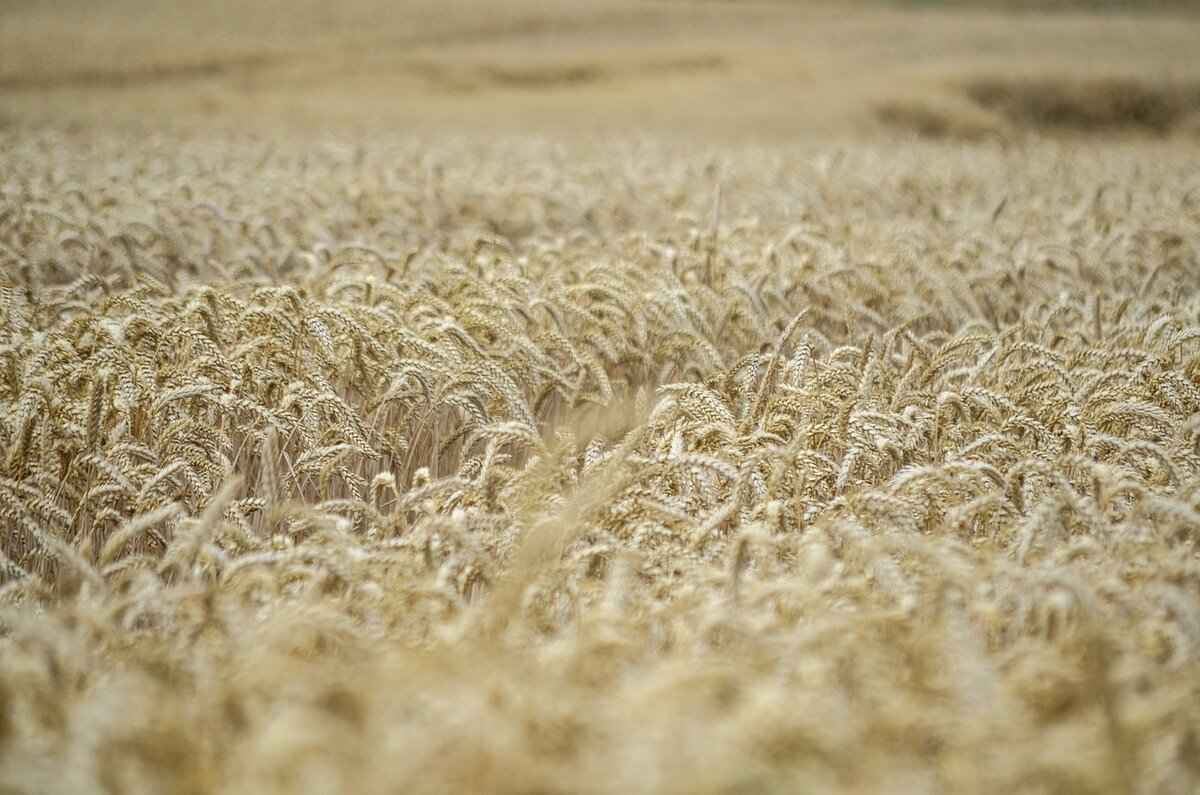
Are Chia Seeds Good for Bone Health?
Chia seeds, often hailed as a nutritional powerhouse, are not only versatile and easy to incorporate into various meals but also packed with essential minerals that play a crucial role in maintaining bone health. Among these minerals, calcium, magnesium, and phosphorus stand out as vital nutrients that contribute significantly to bone strength and integrity.
Calcium: The Backbone of Bone Health
Calcium is perhaps the most well-known mineral when it comes to bone health. It is the primary component of bone tissue, and adequate calcium intake is essential for achieving optimal bone density. Chia seeds contain approximately 631 mg of calcium per 100 grams, making them an excellent plant-based source for those who may not consume dairy products. Regular consumption of chia seeds can help ensure that your body receives enough calcium to support bone structure and function.
Magnesium: The Unsung Hero
While calcium often takes the spotlight, magnesium is equally important for bone health. It helps convert vitamin D into its active form, which in turn aids in calcium absorption. Chia seeds provide about 335 mg of magnesium per 100 grams. This mineral not only supports bone strength but also plays a role in preventing osteoporosis, a condition characterized by weak and brittle bones. By including chia seeds in your diet, you can boost your magnesium intake, which is essential for maintaining healthy bone mass.
Phosphorus: A Key Player
Phosphorus works hand-in-hand with calcium to form the mineral complex that gives bones their strength. Chia seeds contain around 860 mg of phosphorus per 100 grams, making them a rich source of this critical mineral. Adequate phosphorus levels are necessary for bone formation and maintenance, and a deficiency can lead to bone-related issues. By adding chia seeds to your meals, you can help ensure that your body has the phosphorus it needs to support healthy bones.
How Chia Seeds Help Prevent Osteoporosis
Osteoporosis is a significant health concern, especially for older adults, leading to an increased risk of fractures and falls. The combination of calcium, magnesium, and phosphorus found in chia seeds can help mitigate this risk. Studies suggest that a diet rich in these minerals can enhance bone density and reduce the likelihood of developing osteoporosis. By incorporating chia seeds into your daily diet, you can take proactive steps towards maintaining strong bones as you age.
Additional Benefits of Chia Seeds for Bone Health
- Omega-3 Fatty Acids: Chia seeds are rich in omega-3 fatty acids, which have anti-inflammatory properties that can further support bone health.
- Antioxidants: The antioxidants in chia seeds help combat oxidative stress, which can negatively impact bone health over time.
- Fiber: The high fiber content promotes digestive health, ensuring that your body efficiently absorbs the nutrients necessary for bone maintenance.
Incorporating chia seeds into your diet is simple and can be done in various ways. You can add them to smoothies, sprinkle them on salads, or mix them into yogurt for a nutritious boost. Their mild flavor makes them a versatile ingredient that can enhance both the nutritional value and taste of your meals.
In conclusion, chia seeds are an excellent choice for anyone looking to improve their bone health. With their rich content of calcium, magnesium, and phosphorus, along with additional health benefits, these tiny seeds can make a significant impact on your overall wellness.
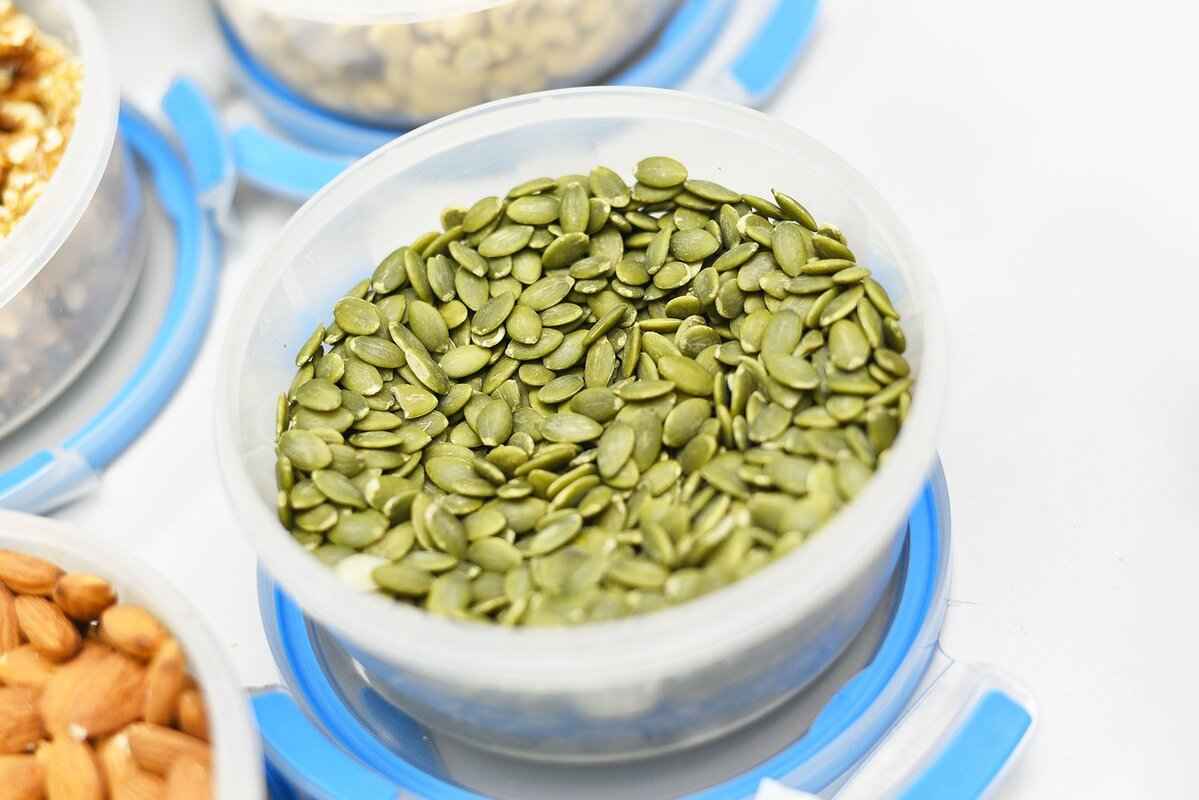
Can Chia Seeds Enhance Athletic Performance?
Athletes are always on the lookout for natural ways to boost their performance, and chia seeds have emerged as a popular choice in recent years. These tiny seeds, packed with essential nutrients, offer numerous benefits that can enhance athletic performance and recovery.
One of the primary reasons athletes incorporate chia seeds into their diet is their ability to provide a sustained release of energy. Unlike simple carbohydrates that lead to quick spikes and crashes in energy levels, chia seeds contain complex carbohydrates that digest slowly. This slow digestion ensures that athletes have a steady supply of energy throughout their workouts or competitions, preventing fatigue and maintaining optimal performance.
Additionally, chia seeds are rich in omega-3 fatty acids, which are known for their anti-inflammatory properties. This is particularly beneficial for athletes who often experience muscle soreness and inflammation due to intense training. By incorporating chia seeds into their diet, athletes can help reduce recovery time and improve overall muscle function.
Hydration is another critical factor for athletic performance, and chia seeds excel in this area as well. When soaked in water, chia seeds can absorb up to 12 times their weight, forming a gel-like consistency. This gel not only helps to keep the seeds hydrated but also provides a source of electrolytes, which are essential for maintaining fluid balance during prolonged exercise. Consuming chia seeds before or during workouts can aid in hydration, helping athletes perform at their best.
Furthermore, chia seeds are an excellent source of fiber, which plays a significant role in digestive health. A healthy digestive system is crucial for athletes, as it ensures that nutrients are absorbed efficiently. The high fiber content in chia seeds promotes regular bowel movements and prevents gastrointestinal discomfort, allowing athletes to focus solely on their performance.
In terms of protein, chia seeds offer a plant-based source that is particularly beneficial for athletes following vegetarian or vegan diets. With about 4 grams of protein per ounce, chia seeds contribute to muscle repair and growth, making them a valuable addition to an athlete’s nutritional regimen.
To incorporate chia seeds into their diet, athletes can add them to smoothies, oatmeal, or yogurt. They can also be sprinkled on salads or mixed into energy bars for a nutritious boost. The versatility of chia seeds makes them easy to include in various meals and snacks, ensuring that athletes can reap their benefits effortlessly.
In summary, chia seeds are a nutritional powerhouse that can significantly enhance athletic performance. Their ability to provide sustained energy, promote hydration, reduce inflammation, and support digestive health makes them an ideal choice for athletes looking to optimize their training and recovery. By including chia seeds in their diet, athletes can harness the full potential of these tiny seeds to improve their overall performance and well-being.
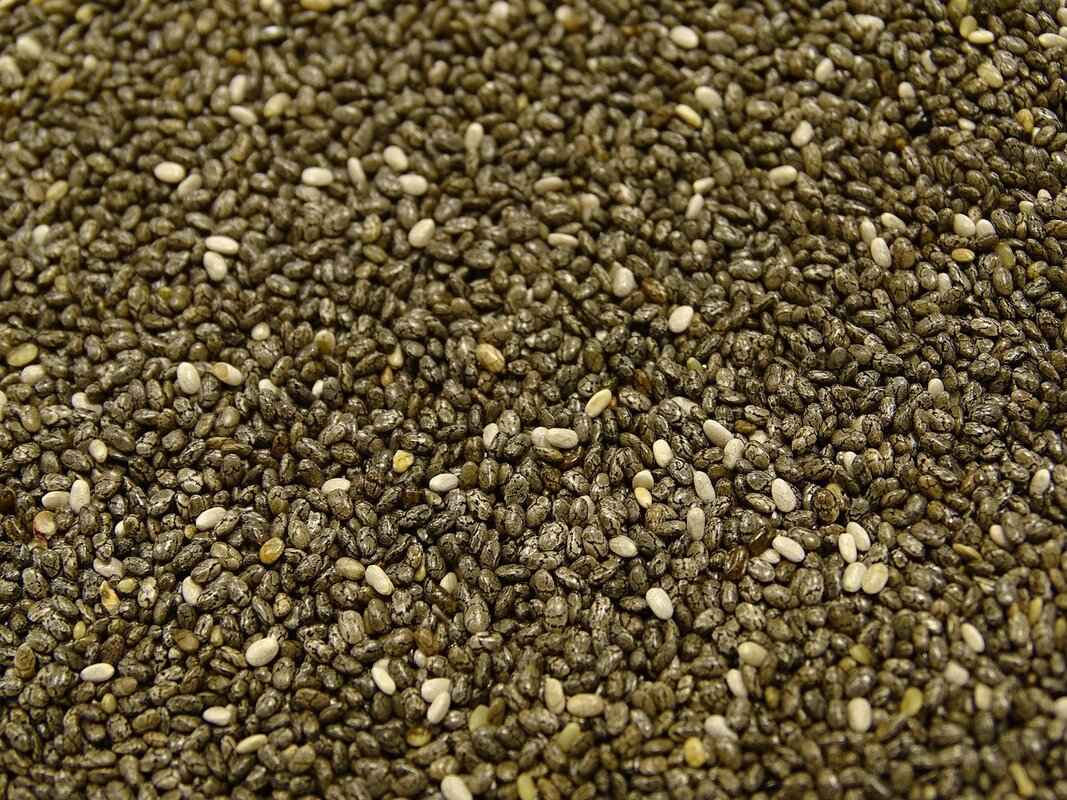
How to Incorporate Chia Seeds into Your Diet?
Chia seeds are not only a nutritional powerhouse but also a versatile ingredient that can elevate your meals in both flavor and health benefits. Their unique ability to absorb liquid and form a gel-like consistency makes them an exciting addition to a variety of dishes. Here’s how you can easily incorporate these tiny seeds into your daily diet.
Adding chia seeds to smoothies is a simple way to boost their nutritional value. Just a tablespoon of chia seeds can enhance your smoothie with omega-3 fatty acids, fiber, and protein. Blend them in with your favorite fruits, greens, and a liquid base like almond milk or yogurt. The seeds will not only enrich the flavor but also give your smoothie a thicker texture.
Mixing chia seeds into yogurt is another delicious option. You can sprinkle them on top or stir them in for a satisfying crunch. Consider letting the chia seeds soak in the yogurt for about 30 minutes to allow them to swell, which creates a creamy and filling snack. Add fruits, nuts, or honey for extra flavor and nutrition.
For a nutritious twist, add chia seeds to your salads. They can be sprinkled on top or mixed into dressings. Their subtle nutty flavor complements various salad ingredients, and their texture adds an interesting element. A tablespoon can provide a significant boost in fiber and protein, enhancing the meal’s overall health benefits.
Chia seeds can also be incorporated into baked goods like bread, muffins, and cookies. They can replace eggs in recipes by mixing one tablespoon of chia seeds with three tablespoons of water and letting it sit until it becomes gel-like. This not only binds ingredients but also adds nutritional value. You can also fold chia seeds directly into the batter for added texture and nutrition.
- Make chia pudding by soaking chia seeds in milk or a dairy-free alternative overnight. Add vanilla, cocoa, or fruits for flavor.
- Use chia seeds as a topping for oatmeal or cereal, providing a nutritious kick to your breakfast.
- Incorporate them into energy bars or granola for an added crunch and health boost.
- Mix chia seeds into sauces or soup for a thickening agent and added nutrients.
In conclusion, chia seeds are a remarkably versatile ingredient that can be easily included in various meals throughout the day. Their health benefits, combined with their ability to enhance the flavor and texture of foods, make them a fantastic addition to any diet. Whether you’re blending them into smoothies, mixing them into yogurt, or using them in baking, chia seeds can help you achieve a more nutritious and satisfying diet.
Frequently Asked Questions
- What are the health benefits of chia seeds?
Chia seeds are packed with essential nutrients, including omega-3 fatty acids, fiber, and protein. They can help improve digestive health, support heart health, and even aid in weight management!
- How can I incorporate chia seeds into my diet?
You can easily add chia seeds to smoothies, yogurt, oatmeal, or even baked goods. They can also be sprinkled on salads for an extra nutritional boost!
- Are there any side effects of consuming chia seeds?
Generally, chia seeds are safe for most people. However, consuming them in large amounts may lead to digestive discomfort. It’s best to start with a small amount and increase gradually.
- How do chia seeds help with hydration?
Chia seeds can absorb up to 12 times their weight in water, which helps keep you hydrated. This makes them a great addition to your pre-workout snack!
- Can chia seeds be eaten raw?
Absolutely! Chia seeds can be eaten raw, soaked, or added to various dishes. Just remember to drink plenty of water when consuming them!















